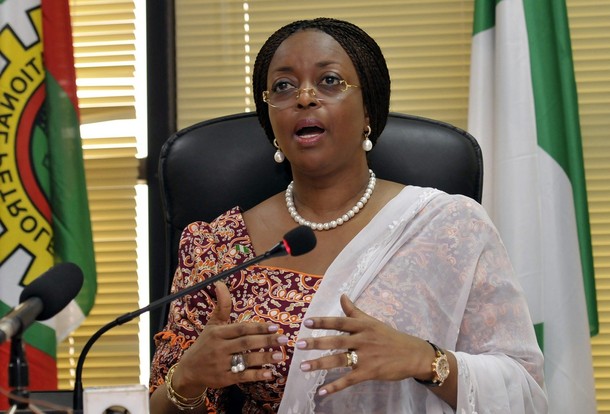The Chairman of the Economic and Financial Crimes Commission (EFCC), Abdulrasheed Bawa has said the commission recovered $153 million and 80 properties from the former Minister of Petroleum Resources, Mrs. Diezani Alison-Madueke.
Bawa said: “There are several cases surrounding that. As you may have read, I was part of that investigation, and we have done quite a lot. In one of the cases, we recovered $153 million; we have secured the final forfeiture of over 80 properties in Nigeria valued at about $80 million.
“We have done quite a bit on that. The other cases as it relates to the $115 million INEC bribery as the media has sensationalised it, is also ongoing across the federation.”
“We are looking forward to the time when we will, maybe, have her in the country, and of course, review things and see what will happen going forward. The case has certainly not been abandoned.”
Speaking on the trial of former Abia State Governor Orji Uzor Kalu, he said his trial will start soon in Lagos.
Bawa added: “The position is very clear. The EFCC succeeded in 12 years to get him convicted at the Federal High Court. Of course, he went to the Supreme Court, and because the judge that convicted him has been elevated, the ruling was made and the EFCC as a respecter of the rule of law, we have taken it as it is. The Supreme Court has ordered that we should go back to the Federal High Court in Lagos.
“Now, we are at the Federal High Court in Abuja, and we have applied to the court for the case to be transferred to Lagos as ordered by the Supreme Court to enable us start all over again.
“It, however, draws a precedence, and those are the issues; law as the lawyers will say, is a living thing; we had the ACJA in 2015, we have had this problem of elevation of judges from High Court to Court of Appeal, and we pushed that they should be given the opportunity to finish their cases, because some of these cases have taken a very long time.
“We thought we had succeeded in getting this in ACJA, The law was, however, not seen as such. Now, we may have to solve the problem from the constitution, and then, we will be home and dry.”

 Forex3 weeks ago
Forex3 weeks ago


 Naira2 weeks ago
Naira2 weeks ago
 Billionaire Watch2 weeks ago
Billionaire Watch2 weeks ago




 Naira3 weeks ago
Naira3 weeks ago




 Naira2 weeks ago
Naira2 weeks ago




 Naira1 week ago
Naira1 week ago




 Naira4 weeks ago
Naira4 weeks ago




 Naira4 weeks ago
Naira4 weeks ago






















